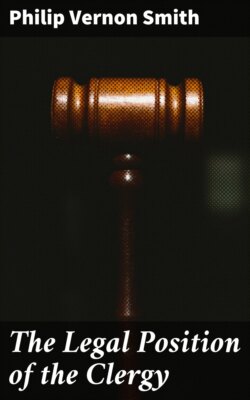Читать книгу The Legal Position of the Clergy - Philip Vernon Smith - Страница 24
На сайте Литреса книга снята с продажи.
Оглавление18. A clergyman cannot divest himself of his orders;[30] and Canon 76 prohibited him from forsaking his calling or conducting himself as a layman under pain of excommunication. But now, by statute, after resigning all preferments held by him, he can surrender all clerical rights and powers, and free himself from all clerical disabilities, if he executes a deed of relinquishment in the prescribed form, and causes it to be enrolled in the Central Office of the Supreme Court of Judicature, and delivers an office copy of the enrolment to the bishop of the diocese in which he last held preferment, or (if he has never held preferment) in which he resides, and gives notice of having done so to the archbishop of the province in which the diocese is situate. And a clergyman who takes this course is relieved from all censures or other proceedings for so doing, but is rendered incapable of afterwards officiating or acting as a minister of the Church of England or taking or holding any preferment therein.[31]
CHAPTER II
Table of Contents
BENEFICED CLERGY
Table of Contents
